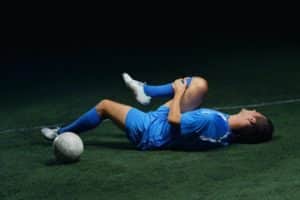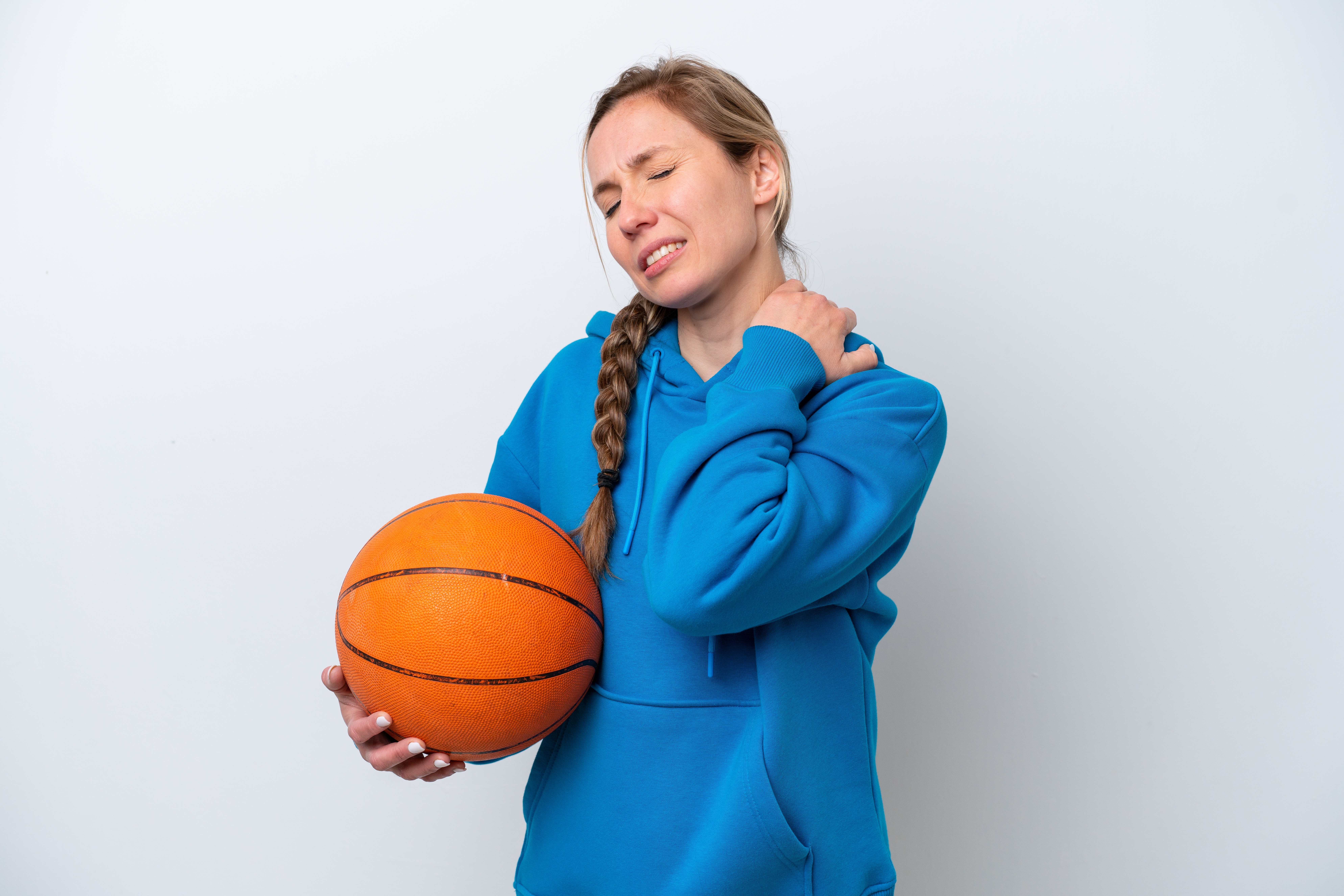Sports Medicine And Orthopedics: Are They The Same?

Athletes of all levels work with teams of specialists to maintain peak performance. Two of the medical professionals that are engaged at every level of an athlete’s development is sports medicine physicians and orthopedic doctors. Understanding the similarities and differences between the two areas of athletic health ensures that you have the resources that you need to achieve your goals.
What Is Orthopedic Sports Medicine?
Orthopedic sports medicine is a specialized branch of orthopedics that focuses on preventing, diagnosing, treating, and rehabilitating injuries related to exercise and physical activity. This field plays a vital role in supporting athletes at all levels, from amateurs to professionals, by enhancing performance, ensuring quick recovery from injuries, and promoting long-term musculoskeletal health.
The scope of orthopedic sports medicine encompasses a wide range of issues, including acute injuries such as fractures, sprains, and dislocations and chronic conditions like tendonitis, arthritis, and overuse syndromes. Professionals in this field, like Dr. Peter Holmes, employ various diagnostic tools, including X-rays, MRI scans, and ultrasound, to accurately identify injuries. Treatment methods can vary from non-invasive techniques such as physical therapy and targeted exercises to more intensive interventions like surgery.
Rehabilitation is a crucial aspect of orthopedic sports medicine, designed to ensure a safe and effective return to activity. Customized rehabilitation plans often include strength training, flexibility exercises, and techniques to improve coordination and balance, tailored to each patient's specific needs.
What Types of Sports Injuries Do Orthopedic Surgeons Treat in San Antonio?
At Sports, Occupational & Knee Surgery, we specialize in treating the following sports-related injuries:
Shoulder Injuries
Shoulder injuries are a common occurrence among athletes. Many of them experience shoulder sprains, bicep sprains, dislocation, and ligament and cartilage tears. While most sprains will not require surgery, oftentimes, ligament and cartilage tears will.
Rotator Cuff Tears
In addition to the shoulder injuries listed above, a rotator cuff tear, which is caused by performing the same shoulder movement, is an injury that will often require surgery. When a rotator cuff is torn, the tendons connected to the muscle around the shoulder joint become disconnected, causing pain, swelling, and weakness with each move. This injury does not heal on its own and often requires surgery.
Knee Injuries
Sports such as football, basketball, running, lacrosse, or skiing often involve harsh, fast movements that put a lot of strain and pressure on the knees. Because of this, knee injuries such as fractures, dislocations, cruciate ligament injuries, meniscal tears, and tendon tears are common. Knee injuries often severely impact athletes as they not only affect their ability and comfort level when playing the game, but they can also make simple tasks such as standing or walking painful and difficult if left untreated.
ACL Tears
By connecting the thighbone to the shinbone at the knee, the ACL plays an important part in full leg function. However, many athletes who play soccer, football, basketball, and tennis may suffer from an ACL tear. This tear often requires a combination of surgery and physical therapy to repair and restore the full function of the leg.
Fractures
In sports such as basketball, rugby, football, and wrestling, where human contact and collisions are common, fractures are the number one sports-related injury. With broken bones in the hands, wrist, collarbone, feel, and legs, most athletes will require surgery and will need to take time off from strenuous physical activity in order to heal their fractures.
Sprains
A sprain, which causes swelling and pain in the ligaments around a joint, is most common for football, basketball, and soccer players. While an athlete can experience a sprain at any joint, spraining the ankle is a common occurrence in sports as so much pressure is applied to the lower half of the body.
Ligament Tears and Disruptions
Ligament tears are separated into two categories: Grade 1 ligament tears are still damaged, but they are only microtears that still allow for stretching with the ligament remaining intact overall. Grade 2 ligament tears are classified as partially torn, but the joint remains stable. Despite the severity of the tear, this injury will require immediate medical treatment to repair the tear and relieve injured athletes of the pain and inflammation it can cause.
This sub-specialty of Orthopedic Surgery represents an additional board certification.
What Types of Surgeries Do Orthopedic Surgeons Perform?
Some of the sports medicine surgeries performed in San Antonio, TX include:
ACL Repair
ACL (anterior cruciate ligament) repair is a surgical procedure to restore stability and function to the knee after the ACL, one of the major ligaments in the knee, has been torn. The ACL is crucial for proper knee movement and stability, especially in activities involving running, jumping, and sudden changes in direction.
This procedure typically involves reconstructive surgery where the torn ligament is replaced with a graft. This graft can be taken from another part of the patient's body, such as the hamstring or patellar tendon, or from a donor. The surgery is usually performed arthroscopically, which involves making small incisions around the knee and using a camera and specialized instruments to perform the repair.
Shoulder Arthroscopy
Shoulder arthroscopy is a minimally invasive surgical technique used to diagnose and treat various shoulder problems, including rotator cuff tears, impingement, and recurrent dislocations. During shoulder arthroscopy, small incisions are made around the shoulder through which a small camera (arthroscope) and surgical instruments are inserted. The arthroscope transmits video to a screen, allowing Dr. Holmes to see inside the joint and perform necessary repairs without making large incisions.
Rotator Cuff Repair
Rotator cuff repair is a surgical procedure to fix tears in the rotator cuff, a group of muscles and tendons that surround the shoulder joint and are essential for shoulder movement and stability. This type of injury is common in sports that involve overhead motions.
Rotator cuff repair can be performed using arthroscopic or open surgery techniques, depending on the severity and nature of the tear. Arthroscopic repair involves small incisions and using a camera and instruments to sew the torn tendon back onto its attachment to the bone, often using suture anchors. Open surgery may require large or complex tears and involves a larger incision for better visibility and access to the tendons.
Meniscus Surgery
Meniscus surgery addresses tears in the meniscus, a C-shaped piece of cartilage in the knee that cushions and stabilizes the joint. Meniscus tears are common injuries in sports involving twisting movements and sudden stops.
Meniscus surgery is usually performed arthroscopically. Depending on the type and location of the tear, the surgery may involve meniscus repair, where the tear is sewn together, or meniscectomy, where damaged tissue is trimmed away. Meniscus repair is preferable to preserve knee health, but not all tears are suitable for repair.
Can A Sports Medicine Physician Perform Surgery?
They would not be performing the surgeries as they would be referred to an Orthopedic Surgeon. Dr. Holmes is a Board Certified Orthopedic surgeon with a subspecialty in Orthopedic Sports Medicine.
What Are the Most Common Sports-Related Injuries?
Some of the most common sports-related injuries among athletes and those who regularly exercise are tears, sprains, pulls, and fractures that involve muscles in the shoulders, elbow, knee, legs, and ankles.

What Are the Most Common Non-Surgical Orthopedic Sports Medicine Treatments?
For some athletes, runners, and dedicated workout enthusiasts, surgical treatment is not always needed for their sports-related injuries. In this case, Dr. Holmes is able to provide non-surgical treatments for common sports injuries. These treatments may include:
- Fluid drainage
- Steroid injections
- Physical therapy
- Casting for sprains or broken bones
- Joint distention and manipluation
- Ultrasound-guided injections
What Are the Benefits of Visiting an Orthopedic Doctor With a Specialty in Sports Medicine?
If you are an athlete or if exercise is part of your daily routine, establishing a relationship with an experienced orthopedic surgeon who is board-certified in Sports Medicine, just like Dr. Holmes is, can benefit you in more ways than one. In comparison to physical therapists or sports medicine doctors who are not able to perform surgery, orthopedic surgeons have an understanding of sports-related injuries that allows them to accurately diagnose and treat each condition with surgical and non-surgical procedures. By routinely visiting your orthopedic surgeon, your muscle, bone, and joint health can constantly be monitored. This can help prevent any further injuries.
In addition, the same orthopedic surgeon assessing your body’s needs and progress throughout a sports season will often be the same orthopedic surgeon who will perform your surgery if need be. Not only will this relationship establish trust between doctor and patient, but it also gives the patient comfort in knowing that their surgeon understands the importance of restoring the full function of the damaged area in order to make a return to their sport.
Do I Need to Be an Athlete to Benefit?
No. Fortunately, it is not just for athletes! If you are an avid runner, dedicated to your workout routine, or anyone who has been injured from exercise-related incidents or suffers from chronic conditions such as tendonitis, sports can benefit you. Most people who visit are often not athletes, but rather those who have been injured from training, exercise, or the physical demands of their job. You do not have to be an active athlete to receive professional medical advice or referrals on the best way to heal.
Learn More About Sports Medicine. Contact Sports, Occupational And Knee Surgery.
To learn more about sports medicine, ACL repair, podiatry and our other services, contact Sports, Occupational, and Knee Surgery to schedule a personal consultation. We have an office in San Antonio, Texas, and you can contact us directly at (210) 696-9000.

